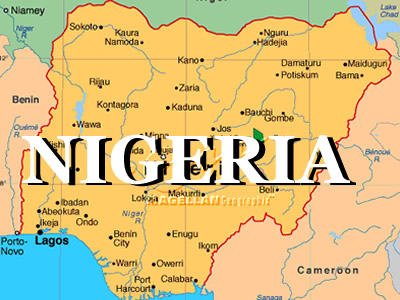By: Ifeanyi Izeze
Recent deliberate attempts to resurrect the onshore/offshore dichotomy controversy and elevate it to the level of an urgent national issue despite the known fact that it has all the trappings to generate acrimonious wrangling within the already over-heated polity brings out who we really are as Nigerians. By the way, who is actually afraid of this dichotomy? From most of the comments on both sides of the divide, Nigerians are being manipulated into believing that there is a section of the country that is afraid of resurrecting this onshore/offshore thing.
In the first instance, what is onshore/offshore dichotomy?
If we go back to the 1960 and 1963 constitutions, sections 134 and 140 respectively, the Continental Shelf of Nigeria going up to 200 nautical miles was deemed to be part of a region for the purpose of paying 50 per cent derivation. The constitution stated that for the purpose of derivation, a state that has a coast is deemed to be the owner of the continental shelf. That was how the issue of derivation evolved. It was by virtue of Decree 9 of 1971 that a former Head of State, Gen. Yakubu Gowon’s administration introduced the onshore/offshore dichotomy and it was abolished three times, first in 1975, second in 1979 and then in 1992, until it was reintroduced under the administration of Chief Olusegun Obasanjo.
In the real sense, the dichotomy is still in place to the extent that the Abrogation Act of 2004 drastically reduced the constitutional provisions and the internationally recognized boundary definition of continental shelf from 200 nautical miles to 200 feet isobaths (which is a mere measure of the low water mark (depth) of the land surface of a littoral state rather than the areal measurement) Â The Constitution, in section 2(2), 3(1) (2) and in the First Schedule thereto, provides that there are 36 states in the Federation. Accordingly, all the lands, hills, streams, savannahs, deserts, rivulets, rivers, seas and oceans in or abutting on to this aggregate of territories must be in a particular state to be part of Nigeria. As said in law, Ipso facto, any argument distinguishing any of the foregoing features from any or all of the 36 states is non sequitur and sophistic.
In the 1960 Constitution that ushered in Independence, elaborate provisions were made in sections 133-139 for revenue allocation. Of particular importance to this case is section 134, which reads:
“134 (1): There shall be paid by the Federation to each Region a sum equal to 50 per cent of the proceeds of any royalty received by the Federation in respect of any mineral extracted in the Region and any mining rents derived by the Federation during that year from within that Region… This provision was replicated in section 140(6) of the Republican Constitution (1963). For the purpose of this section, as said by the constitution, the continental shelf of a Region shall be deemed to be part of that Region. It should be noted that this provision dovetails into Article 76 of the United Nations Convention on the Law of the Sea, 1982, which provides that: The Continental Shelf of a Region shall be deemed to be part of that Region. That is international law.
Now that this issue is being resurrected and good enough not by the littoral states, what prevents the Niger Delta states from now insisting on what was in the original constitution of the federal republic of Nigeria agreed in 1960 as the basis for the co-existence of the peoples in the conscription called Nigeria. There is no need at all for the ongoing waste of time, resources and useful energy defending or accusing each other. Let’s come to the centre with our arguments and see whose would sail through and also the consequences.
Rather than being apologetic or trying to be the good boy of the house which of course they are not, the South-South and the other oil producing states should be asking for a full resource control (100 per cent) or at best a return to the first principle of derivation, which was 50 per cent, as was the case in the first Republic and which these people raising this matter now fully enjoyed. If we can fight for complete removal of onshore/offshore dichotomy in revenue sharing, we should also be ready to grant the request of full resource control not just for oil but for all natural resources domiciled in any section of this country.
It is very unfortunate that all these wrangling about the onshore/offshore dichotomy are just for what to share at the centre. When will our governors quarrel among themselves in competition on creating wealth and employment from the lump they have been receiving rather than fighting to share?
Agreed that our country faces several challenges today as we pursue the consolidation of our democracy and the triumph of the rule of law in all aspects of our national life, we should actually be pushing those things that bring us closer together rather than pull us farther apart from each other. But if any group thinks otherwise, let them go ahead with the matter and all of us would see how it will end and not just the end of the debate and/or amendment but more importantly, the consequences.
(IFEANYI IZEZE can be reached on: iizeze@yahoo.com; 234-8033043009)



